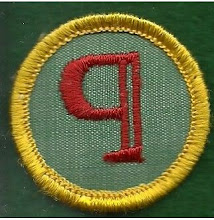I am a computer geek who still
believes that software should be open-source, even though my clients use
software that requires me to buy and use licensed products. I used to tell my
students that Mac-vs-PC was not the point: use the machine that suits you best.
If you really want power using a computer, learn to write code. When I was
first learning computers -- that would be the 1960's -- the only way to use a
computer was to learn code, which was the way it was until we moved to the
GUI, the graphical interface. But here's the deal -- several decades later I
can still see the code under the interface... just like... writers can see the
alphabet in their writing.
You knew I'd manage to segue from
computer geek to writing and editing, yes?
I learned my A-B-C's; then learned
that the letters could be combined to make words, the words to make sentences.
How we come to do this is nothing short of miraculous, since our alphabet has
become an abstract representation of what were once organic sounds and symbols.
I remember the first page of each letter in my World Book Encyclopedia showed
how the letter evolved: "A" started out as an ox head and so forth.
I am also a letterform and
typeface geek, worked as a typographer when the world needed such folks -- but
that's as far as I'll digress here, except that searching for a good link to
the origins of the alphabet led me to a book, which I just ordered -- ah the
hypertext world!
In second grade Mrs. Sandstedt asked
us to write about what super-power we would want; we wrote for a few minutes,
then she invited us one by one to her desk to share our papers with her. I
remember what I wrote: I wanted to speak all the languages in the world; I
remember her reply -- "that's what artists and writers do."
Hear that? Artists and writers
speak all the languages in the world.
I also remember how I had Mrs. Sandstedt's
undivided attention for ten minutes: Ever year I taught I tried my best to give
a few minutes of my undivided attention as often as I could. No small feat when
as a middle and high school teacher I saw 100-120 students a day.
But back around to that open
source concept.
In California "...Governor
Jerry Brown signed into law a proposal to create a website that will allow
students to download digital versions of popular textbooks for free."
Do you remember buying textbooks
at the beginning of the semester and returning them at the end? I do – and I remember often reading assignments in the texts in the
college bookstore because I couldn't afford the books – and eat too.
Going from $1000 a year or more in
textbooks to free is darn cool for the students, but negotiating the digital
rights with the publishers will be challenging. there is, of course, a
committee overseeing the process, first texts will be available in 2013-2014.

No comments:
Post a Comment